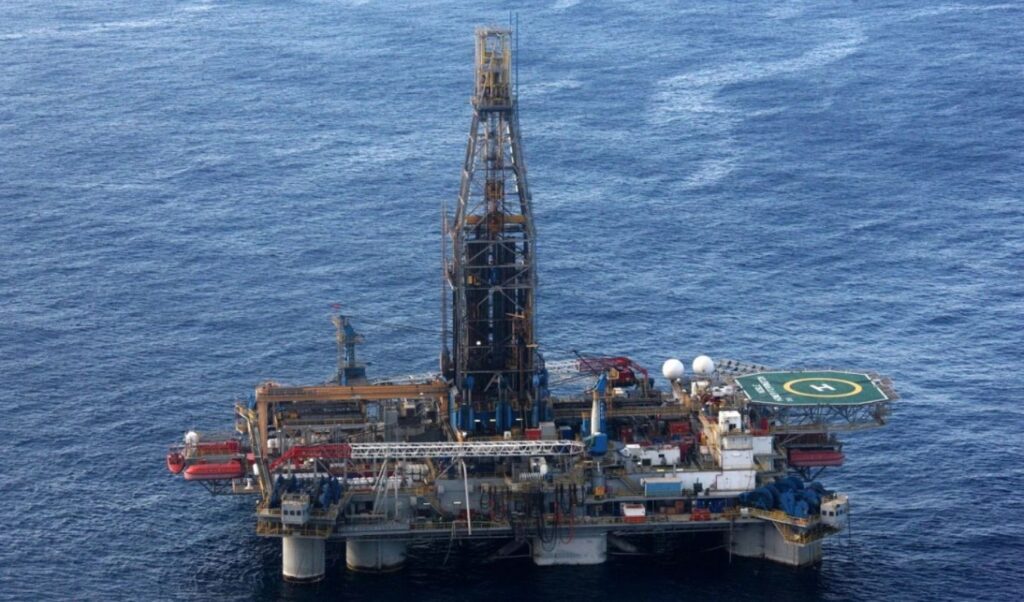The arrival of American oil giant Chevron in Greece is being viewed by diplomatic circles as a significant milestone for the evolution of geopolitical balance in our region, as it will give our country a strong advantage against Turkish tactics in the South and Southeast Mediterranean and a resounding response to Libya’s claims.
The Greek government’s expectations from the American company’s presence in maritime blocks south of Crete have been expressed many times in recent months, most recently by Foreign Minister George Gerapetritis on Parapolitika 90.1. “When Chevron comes to express interest, and you know what it means politically and geopolitically for an American colossus to invest in a specific country, then in the field we will see who has the blocks and who doesn’t according to the perception of those who would not risk their participation,” Mr. Gerapetritis argued, referring to Libya’s claims. He stressed, however, that “we would have no problem if they took on the other side too (i.e., Chevron), as long as the zoning is located in the maritime area we have characterized as Greek EEZ.”
In the coming days, it remains to be seen what the reaction of our neighboring countries will be to these developments. However, according to people with knowledge of the geopolitical game, the role of multinational companies of Chevron’s caliber connected to the Mediterranean energy map has mainly geopolitical implications, beyond economic development, and will provide Greece with national security and strength at an international level. Particularly regarding Chevron, it is closely intertwined with the United States’ strategic objectives. It is not coincidental that US Interior Minister Doug Bergam arrived in our country the day after the tender deadline.
As Costis Stamboulis, president of the Institute of Energy for South-East Europe (IENE), argues to parapolitika.gr, Chevron has now won a tender to give it the right to invest millions, if not billions, over time. “At this moment it is the first step. Of course, it is a serious scheme that has been created in partnership with Hellenic Energy, which is also contracted with Exxon Mobil and other companies. So it has interest from this side. The greatest interest, in my opinion, is that the space east of the maritime sections is secured, where Exxon Mobil has already conducted research. So the boundary line reaches the easternmost part of Crete and south, up to the Middle Line of our supposed Libyan EEZ boundary. This has the greatest interest at this stage, because whether Chevron will proceed with research or not remains to be proven. And I say this with experience from Exxon Mobil, which has been here since 2019. And we have 2025 and nothing has happened, not one exploratory drilling. Nevertheless, it is important, because even in Exxon Mobil’s case, its demarcated section, on the south and west side, coincides with the Greek EEZ, which yes exists in texts, in the 2011 law, but does not exist on a map.”
According to Mr. Stamboulis, Chevron came to our country because it knows the region well, having experience in Cyprus, Israel and Egypt. It has studied the general geological data of the Eastern Mediterranean. “So the first research that has been done coincides with its own assessments that the subsoil is promising for finding some significant deposits. From there on, it will have to conduct its own intensive seismic surveys in the area.
That is, to cover its blocks with many lines, which will show it where the probable targets are. This will take at least two years. It will only know about deposits if it conducts exploratory drilling. So we are far from there. We would be very lucky if the first exploratory drilling happens in 2029. Greece has gas and oil deposits. They remain to be discovered, brought to the surface and exploited. Once exploited, there will be economic activity, new jobs will be created, investments will be made, there will be general economic and industrial interest.
The government’s goal is to accelerate procedures so that by the end of the year, contracts signed with contractor companies will be submitted for ratification to Parliament.




